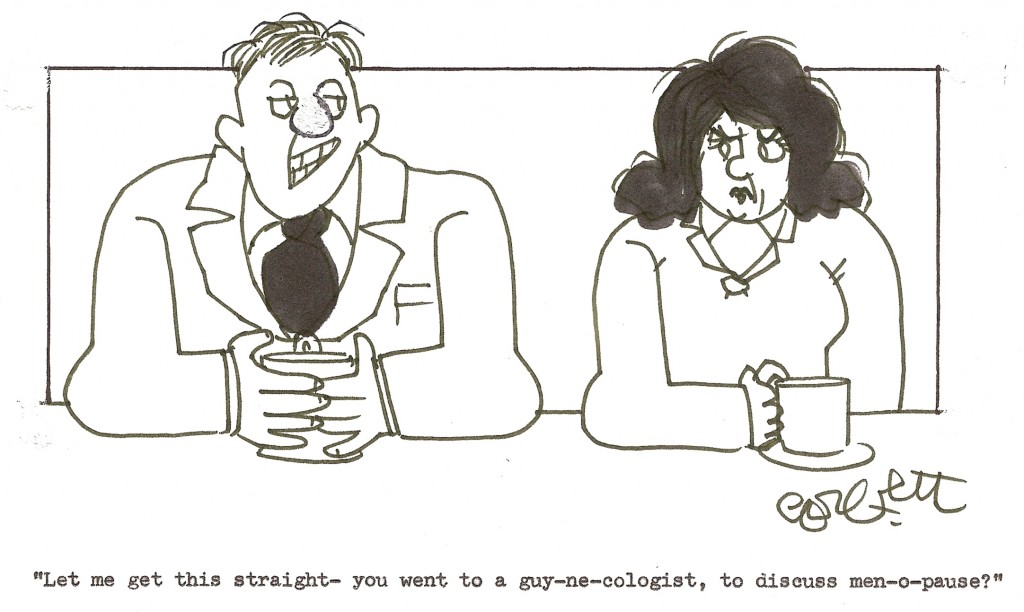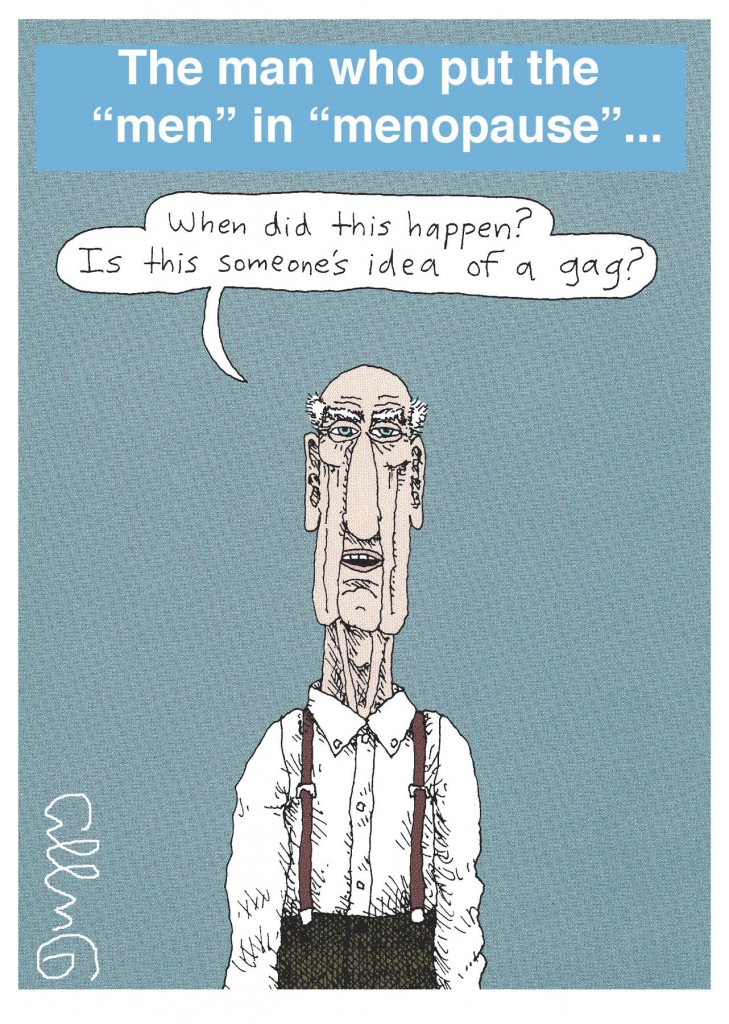She’s a lady. Treat her with…
Care? Or with LadyCare?! This nifty, palm-sized device snaps onto your underwear and actually resets your autonomic nervous system, not to mention stimulating blood flow in order to boost the body’s ability to heal itself and restore its hormonal balance. And, it’s backed by anecdotal survey data showing significant improvements in a host of menopausal symptoms ranging from anxiety and weight gain to hot flashes, inability concentrate and sexual libido issues. What’s more? LadyCare is evidently used by more than 250,000 women worldwide. Wow! So why haven’t we heard of it before? Aren’t magnets supposed to attract, not repel? Oh wait! That depends on its magnetic field, right?
Did you know that the strength of a magnet is referred to as its ‘magnetic moment?’ Neither did I. But it seems perfect for this post because LadyCare’s moment in the spotlight is pretty repellent. Notably, if you do a search on PubMed, you may stumble across a thorough analysis of the use of static magnet therapy, not for menopause but for pain. The conclusion? “The evidence does not support the use of static magnets for pain relief, and therefore magnets cannot be recommended as an effective treatment.”
She’s a lady. Always treat her with respect. Whoa whoa whoa…
This one’s a likely dud; save your $$.
Read More
Menopause: a disease. Or not?
For some time now, I have been writing about the medicalization of menopause and about the Menopause Industrial Complex and its implication for how the life transition is currently managed, understood and communicated. And if you are a regular reader of this blog, you know that I find it appalling how society has managed to change how we perceive a biologically natural transition from a positive to a negative. Consequently, I was intrigued when I stumbled across a research article in BioMedCentral Medical Education journal discussing the role of medical education in driving how future clinicians view a constellation of symptoms as the norm (or not) and how they subsequently label them as a result.
Not surprisingly, how something is labeled drives practitioner atttiudes towards management and treatment.
Writing in the journal, the study’s co-authors say that “The labelling of a condition as a “disease” has important implications…failing to label a condition as a disease may mean effective treatment is not prescribed, labeling a non-condition as a disease may result in unnecessary treatment.” Moreover, they point out that data have shown that such labelling leads to greater numbers of prescriptions. And, that labeling a spectrum of symptoms incorrectly may promote anxiety about prognosis and overtreatment.
Fortunately, in this study of 190 medical students, approximately 80% concurred that menopause was a “non-disease.” And yet, one has to wonder that if a cohort of licensed practitioners were surveyed, the results would be the same?
Despite the fact that the rates of prescriptions for hormone replacement therapy have significantly declined, the historical construct of the menopause has long been associated with loss, decline and decay, something is abhorred and shunned in society. In response, marketers and the media have perpetuated and pathologized what author Louise Foxcroft (in her book, ‘Hot Flushes, Cold Science’) refers to as “one more feature in a woman’s linear life history, an inevitable and natural phenomenon, one more thing to negotiate and nowhere near as astonishing or potentially problematic as pregnancy.”
It is all in how you/we view it. And how our practitioners view and label it.
If you are encouraged by the future of medicine, let’s take a look at the ‘now.’
Cynical as I may be about society’s vision of the aging woman, I was further dismayed when my friend and esteemed colleague, Ivan Oransky forwarded an article outlining a small study of residents that participated in a menopause clinic rotation. Within this rotation, the residents had an opportunity review each case after menopausal women were seen and additionally, were offered after-hour lectures to enhance their knowledge and education.
Overall, the findings demonstrated that it was the clinical contact with the women and not sporadic instruction, that significantly impacted residents’ ability to thoroughly understand issues relating to menopause and women’s health (this was evidenced by mean improvements in menopause test scores by 13%). And yet, as the study authors point out, most resident education is currently based on didactics and not face-to-face contact. This implies that these results, however favourable, may not be applicable to the real world.
Another overlooked challenge in this particular case is the adjunctive educational opportunities offered to the resident physicians. In addition to colleague-directed knowledge or realtime clinical experience, they were provided with an opportunity to purchase educational materials about menopause produced by Red Hot Mama’s. Herein lies the rub: Red Hot Mama’s, one of the oldest organizations for menopause, receives funding from Norogyne Pharmaceuticals and advertises Vivelle-Dot hormone replacement on its home page. You may recall that the organization even teamed up with Norogyne Pharma to pimp Vivelle up on a roof; you can find the post here.
The take-home message of these two studies is very clear: currently, medical students appear to be ‘in the know’ about menopause, at least in so far as how it should be classified. This divergent path has the potential to ultimately influence how menopause is viewed and managed in Western society. Moreover, there appears to be a realization that in certain situations real time clinical contact may supercede or significantly enhance didactic education. However, this education may be less valuable if it is driven by commercial interests. What concerns me most is that by the time these practitioners of the future get out into the real clinical world, they may possibly drink the the Kool-Aid or at least, taste it.
How do we approach this ironic paradigm that is being perpetuated and rewound, even by organizations organized to help the very women that they may ultimately be hurting?
Labels? It’s up to you. Menopause, is it a disease or not? And what are you going to do about it?
Read More
Wednesday Bubble: Who put the men in…
menopause? I answered that question last month. But this question opens up a whole ‘nother mess.
Happy Fourth! Stay safe and don’t leave the lighting of those fireworks to the experts, not to your flashes!
Read More
Wednesday Bubble: Age Rage. Guest post by D.A. Wolf
Some of us lie about our age. Others, like me, don’t. But the point is less the lying and more the why. Fellow writer extraordinaire D.A. Wolf weighs in in this guest post….
It isn’t that I don’t worry about it. I do.
It isn’t that I won’t talk about it. I will.
But age isn’t a simple topic, and if you’re a woman, you already know that. At least, you’ll know it sooner or later, and more piercingly than your husband, your brother, your uncle who’s still playing the field, your male boss who continues to climb the corporate ladder, or your 50-something divorced and dating dad.
Aging is unavoidable – if you’re lucky.
Age rage? In this culture? Maybe that’s unavoidable, too.
No, I’m not taking to the highways in a pickup with a shotgun. I’m not planning on packing pistols and going postal over the AARP invites arriving weekly. But I will stand up and proclaim that age discrimination is alive and well – more subtle than we’re willing to admit, and increasingly pervasive.
The worst part?
It feels like we are the “haters.” Women. The ones who make snide remarks about others “showing their age.” The ones who fight tooth and nail at the first sign of laugh lines, gray hair, or traces of soft excess that no amount of dieting will eradicate, where we once carried babies in our bellies.
We aren’t doing ourselves any favors – not at 30, not at 40, not at 50 or any age – viewing the natural process of aging as the enemy.
Aging: It Creeps Up On Us
It isn’t that I don’t feel it – the proverbial march of time in my limbs, in the small of my back, in my shoulders and neck after a long day at the computer. It isn’t that I don’t see it in my face, when morning forces me to look – and I scrutinize – then reach for the moisturizer.
It isn’t that I don’t suffer from a sense of invisibility that comes from walking down a street like a ghost. This is midlife. A transition. But it’s more than that – a parade of days as potentially routine or vibrant as the thousands that have come before, and the thousands that I hope stretch ahead.
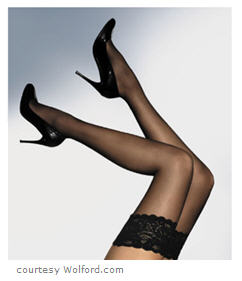 For now, I can paint the gray, gloss my lips, line my eyes and I’m done. I can crank up the bounce in my step – especially in hot heels – in order to maintainsome visibility as a woman. But none of this changes the fact of my age. It doesn’t change the perceptionof who I am when someone knows my age, which may have little to do with the reality of who I am as a person, or the life I lead.
For now, I can paint the gray, gloss my lips, line my eyes and I’m done. I can crank up the bounce in my step – especially in hot heels – in order to maintainsome visibility as a woman. But none of this changes the fact of my age. It doesn’t change the perceptionof who I am when someone knows my age, which may have little to do with the reality of who I am as a person, or the life I lead.
All of which is to say – it’s the assumptions and misconceptions that anger me. I find them absurd. I consider them dismissive. We are individuals. We age differently. And we ought to be allowed to approach the aging process accordingly.
And yes, there is a sense of loss – for some of us, it’s loss when we can no longer bear children, loss that we don’t appear or feel as “perky” as we once did, sorrow as we come to accept certain physical limitations or simply additional maintenance. Many women refuse to speak of the sadness, to grieve aspects of their younger selves, as though to do so is to admit some terrible truth.
I say – to hell with that!
Aging is a mixed bag, but it’s also more of the same – the same joy and challenge in meeting life as it is, the same excitement and risk in chasing your dreams, the same sweetness in finding love, mischief, humor, beauty.
Why Women Lie About Their Age
Do I lie about my age?
You bet. When it suits me. But more than that, I do so when it’s a necessity.
A necessity for getting work. A necessity for being seen as “valuable” – regardless of how I see myself. A necessity in the dating world, if you find yourself widowed or divorced.
Do I long for a culture in which age would be viewed as one more interesting fact – of no particular importance except perhaps to your physician?
Believe it.
So tell me. Do you lie about your age?
I bet you would – in the right circumstances. To get a job, and keep it. To have a shot at a few dates, and not be discarded as a viable potential “candidate” for a relationship.
Look Around. Age Estimates?
I’m an older mother, though this is no longer unusual. I gave birth in my mid-late thirties, and strangely, having kids older has kept me young in some ways, and aged me in others.
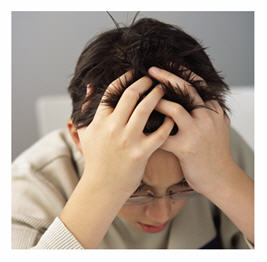 There are advantages in terms of experience and patience. There are disadvantages – not so much when dealing with babies and toddlers, butmidlife motherhood when kids are fighting? Going through your own hormonal changes as teenagers are bouncing around inside their bodies?
There are advantages in terms of experience and patience. There are disadvantages – not so much when dealing with babies and toddlers, butmidlife motherhood when kids are fighting? Going through your own hormonal changes as teenagers are bouncing around inside their bodies?
Sound proof the walls!
Thinking back to my childhood, I recall family members of all ages at social gatherings – intermingling and joining in the discussion. When I’ve lived in Europe or visited friends, the parties I attended included 20-somethings through 80-somethings. To me, this seemsnormal.
Consider this. Watching old movies from the 1940s and 1950s, note the generational mix in scenes of night clubs, at concerts, around the dining table. You’ll observe everyone from 20-something through middle age to “older” people (sixties? seventies?) all socializing. In films that offer business settings, while the women generally play a Girl Friday or wife, do note that you see men who are young, and plenty who older.
Today?
When’s the last time you socialized with people who were 20 years your senior? Look around your workplace. Is there anyone who appears to be over 50?
As I recall my last in-office contracting gig, there wasn’t a single manager or team member even close to 50 – out of a group of considerable size.
How Many Shades of Gray?
 Everyone may be talking about the latest book to make waves – all those shades of gray in intimate relationships. My preoccupation with shades of gray?
Everyone may be talking about the latest book to make waves – all those shades of gray in intimate relationships. My preoccupation with shades of gray?
There’s the expense of coloring my hair, which is an irritation. As my skin remains youthful, I paint the gray and pull off whatever age it is that I pull off… in person.
But the fact remains that a man with silver hair is perceived as distinguished, and a woman – with a few notable exceptions (Helen Mirren comes to mind) – is considered to be letting herself go,someone who has given up on dating, and consequently, a woman past a sex life.
Live Fully, Live Well
Am I taking to a bullhorn in my quiet neighborhood?
Hardly.
But that doesn’t mean that I don’t feel infuriated when I’m dismissed without a second look, when professional experience is ignored in favor of quick, cheap, and disposable, or when men my own age won’t give me a second glance – even before they’ve met me.
But I long for a little common sense. Aging is inevitable, and anti-aging propaganda is just that – propaganda. That doesn’t mean we don’t have choices in products and services, but what about a healthy glow as a mature adult? Doesn’t that sound refreshingly good to some of us?
On that note, I’ll pop my Over-The-Counter calcium with my salad and yogurt. I’ll remind myself to stay focused on the basics – continuing to nourish my mind with constant learning, and my body with healthy food in moderation. I’ll attempt as much sleep as I can manage (tougher for me), and daily walking, which is all about discipline.
Senior Sex and Sensibility?
Jane Austen, move over. Sense and sensibility? Let’s go with sex and sensibility instead.Safe sex, of course.
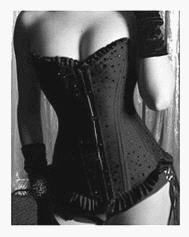 I’m not quite at “senior sex” just yet – not that I would know where to make that distinction. But sensuality and sexuality don’t evaporate as we grow older. At least, they don’t have to.
I’m not quite at “senior sex” just yet – not that I would know where to make that distinction. But sensuality and sexuality don’t evaporate as we grow older. At least, they don’t have to.
Do our intimate lives change? Sure. But my personal Rx involves a steady dose of sizzling sex with a man I love – with or without his shades of gray, or my own. And let’s face it – that’s a hell of a cardio. What could be better to soothe the Age Rage?
- Do you unknowingly discriminate against those over a certain age – before you’ve met them?
- Has your impression of what is “old” changed as you’ve grown older?
- When’s the last time you engaged in conversation with someone who is 70+ or 80+ years old?
- Are you worried about getting older, and fighting it tooth and nail?
Read More
Etymologically speaking…Friday Folly – The Man
Ever wonder who’s responsible?!
I give you….
The Man.
Read More







